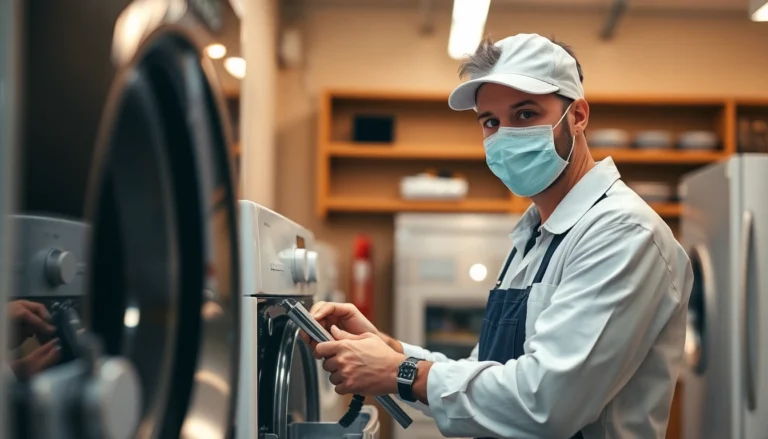
Understanding the Australian Towels Manufacturing Industry
The Australian towels manufacturing industry is a vital sector that combines tradition, innovation, and sustainable practices to meet both domestic and international demands. As a country with a rich textile heritage and a reputation for quality craftsmanship, Australia has cultivated a robust environment for towel production. The industry is characterized by its diverse range of products, from luxury bath towels to functional beach towels, catering to a broad spectrum of consumers and business clients alike.
According to recent market analyses, the industry has experienced consistent growth driven by an increasing preference for premium-quality textiles and eco-friendly manufacturing practices. For instance, brands such as Towels manufacturer in Australia have expanded their capabilities to serve international markets, emphasizing quality, customization, and sustainable sourcing. This growth is supported by strategic investments in modern machinery, innovative fabrics, and compliance with regulatory standards.
Market Size and Growth Trends in Australia
The Australian towel manufacturing market is estimated to be valued at several hundred million AUD, with projections indicating steady growth over the next decade. Domestic demand is fueled by the hospitality, healthcare, and retail sectors, which demand high-quality, durable, and branded towels. Export opportunities are also expanding, particularly to Asia, North America, and Europe, as global consumers increasingly seek organic and ethically produced textiles.
Key growth drivers include the rising tourism industry, a burgeoning wellness and lifestyle sector, and a shift towards sustainable products. For example, a survey by the Australian Bureau of Statistics highlights that over 70% of local manufacturers adopting eco-friendly production methods have reported increased market share and customer loyalty.
Key Players and Competitive Landscape
The industry features a mix of large-scale manufacturers and smaller artisanal producers. Notable companies such as Loftex, Rialto Linen, and Oasis Towels Australia have established strong reputations for quality and innovation. These companies leverage their extensive supply chains, advanced manufacturing technologies, and customization capabilities to stay competitive.
Emerging players focus on niche markets such as organic, luxury, or hotel-grade textiles, creating a dynamic landscape that fosters innovation and specialization. Competition is intense, with differentiation often rooted in fabric quality, eco-certifications, and flexible lead times.
Regulatory Standards and Quality Benchmarks
Australian manufacturers adhere to strict regulatory standards set by bodies such as the Australian Competition and Consumer Commission (ACCC) and international standards like ISO certifications. These regulations ensure products meet safety, environmental, and quality benchmarks, crucial for export compliance and consumer trust.
Manufacturers are also increasingly adopting Green Seal and OEKO-TEX certifications to demonstrate their commitment to sustainability and safety. This adherence not only enhances brand credibility but also provides a competitive edge in global markets where eco-conscious consumers are actively seeking verified sustainable products.
Choosing the Right Towels Manufacturer in Australia
Factors to Consider: Quality, Sustainability, and Certifications
Selecting an appropriate towels manufacturer involves evaluating multiple factors. First and foremost, quality assurance is paramount—this includes fabric durability, softness, colorfastness, and finishing standards. A reputable Australian manufacturer should provide samples and third-party certifications like OEKO-TEX, ensuring textiles are free from harmful substances.
Sustainability has become an integral aspect of choosing a manufacturer. This encompasses eco-friendly dyeing processes, water and energy conservation, and the use of organic fabrics such as Turkish or Egyptian cotton. Partnerships with manufacturers committed to sustainability not only align with corporate social responsibility goals but also appeal to environmentally conscious consumers.
How to Evaluate Manufacturing Capabilities and Lead Times
Evaluating a manufacturer’s capabilities includes assessing their equipment, production capacity, and technological competence. A reliable manufacturer should be able to handle large orders efficiently while maintaining product consistency. Visiting facilities or requesting detailed factory audits can offer insight into their operational standards.
Lead times are crucial for inventory management and market responsiveness. Communicate your timelines clearly and verify their past record of on-time delivery. Manufacturers with flexible scheduling and contingency plans are preferable, especially when managing seasonal demands or urgent orders.
Customization Options and Product Variety
Australian towel manufacturers often provide a wide range of customization options, including branding, embroidery, dyeing, and sizing. This flexibility enables brands to develop unique product lines tailored to their market segments. Additionally, product variety extends beyond standard bath towels to include beach towels, hand towels, spa towels, and even specialty textiles like bamboo or microfiber options.
Choosing a manufacturer with extensive customization capabilities allows businesses to differentiate their products and enhance brand loyalty.
Best Practices in Towel Production
Material Selection: Turkish Cotton, Egyptian Cotton, Microfiber
The choice of raw materials heavily influences the quality of towels. Turkish and Egyptian cotton are renowned for their long fibers, which produce softer, more durable, and highly absorbent textiles. Microfiber, on the other hand, offers quick-drying qualities and lightweight features, ideal for travel and sports markets.
Leading manufacturers often blend these materials or innovate with organic variants to meet specific customer requirements and health standards.
Manufacturing Processes Ensuring Durability and Softness
Modern towel production employs advanced techniques such as multiple-loop terry weaving, shearing, and special finishing treatments to enhance softness and durability. Quality control processes include tensile strength tests, colorfastness assessments, and softness evaluations through tactile analysis.
Implementing continuous improvement practices, such as Six Sigma or Kaizen methodologies, helps manufacturers maintain high standards and reduce defects.
Sustainability and Eco-Friendly Manufacturing Methods
Eco-conscious manufacturing involves utilizing renewable energy sources like solar power, recycling wastewater, and sourcing sustainable raw materials. Some manufacturers also adopt biodegradable dyes and minimize chemical waste through eco-efficient processes such as low-impact dyeing.
Fostering transparency through environmental certifications adds credibility and appeals to brands aiming for ethical sourcing and eco-friendly product lines.
Leveraging Australian Towels Manufacturers for Your Business
Bulk Purchasing and Wholesale Opportunities
Bulk buying from Australian manufacturers offers significant cost advantages and consistent quality. Many suppliers provide flexible MOQ (minimum order quantities) tailored to different business sizes, from startups to large hotel chains. Establishing ongoing relationships with these manufacturers ensures reliable supply chains and better pricing structures.
For example, Oasis Towels and Linen & Towels are known for their wholesale programs that cater to both domestic and export markets, providing customized solutions in large volumes.
Branding, Private Labeling, and Customization
Private labeling allows businesses to create a unique market identity through custom branding. Manufacturers in Australia often offer embroidery, dyeing, and packaging options, enabling brands to develop distinctive product lines that resonate with their target audience.
Such collaborations have led to successful product launches in retail, hospitality, and corporate gifting sectors, emphasizing the importance of choosing an adaptable manufacturing partner.
Case Studies of Successful Collaborations and Product Launches
One notable example involves a boutique hotel chain partnering with a local Australian manufacturer to develop a luxury towel collection featuring organic Egyptian cotton and bespoke embroidery. This collaboration boosted brand image, increased customer satisfaction, and generated media attention.
Similarly, a wellness startup leveraged customized microfiber towels to enter the sports market, resulting in rapid growth and high brand recognition. These case studies underscore how strategic partnerships with Australian manufacturers can facilitate market differentiation and expansion.
Future Trends in the Australian Towel Manufacturing Sector
Innovations in Fabric Technology and Design
Future advancements include the development of antimicrobial fabrics, moisture-wicking textiles, and smart towels embedded with digital sensors for health monitoring. Designers are also experimenting with eco-friendly dyes and biodegradable fibers to reduce environmental impact.
Integration of these innovations ensures products remain competitive and aligned with consumer expectations for functionality and sustainability.
Eco-Conscious Manufacturing and Organic Materials
The push towards organic, renewable, and biodegradable textiles is expected to accelerate. Australian manufacturers are investing in organic cotton farms, recycled yarns, and low-impact dyeing techniques to meet rising demand for environmentally responsible products.
Legal requirements and consumer preferences are driving transparency and ecolabeling, which will further embed sustainability in industry standards.
Growing Export Markets and Global Demand
Australian towel manufacturers are increasingly targeting export markets, capitalizing on their reputation for quality and sustainability. Strategic trade agreements, participation in global textile expos, and online international sales channels are expanding market access.
As global consumers prioritize eco-friendly and premium textiles, exports are projected to grow, positioning Australia as a key player in the global towel manufacturing arena.





